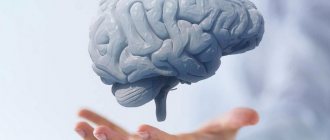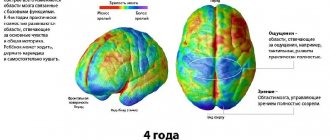Personality development in pedagogy
The basic concepts of science include:
- Upbringing.
- Education.
- Education. Without it, full personality development is impossible. Stimulates and leads development.
- Development.
- And self-improvement.
Parenting is the deliberate process of developing intentional character traits. Acquired qualities determine the level of culture, education, intellectual, spiritual and physical development. So, let's talk about the formation of personality in the pedagogical process.
Science helps to study and identify the best conditions for the socialization of the individual through training and education.
Education is a directed activity aimed at developing a system of qualities, views and beliefs; mechanism that controls socialization systems. Focused on the development of worldview, morality, affiliation, character and personality traits, actions. The task is to identify the natural inclinations and talents of children, their development in accordance with individual characteristics, capabilities and abilities. Personality development occurs on the basis of the formation of:
- A certain attitude towards the surrounding world.
- Worldviews.
- Behaviors.
The most important condition for the formation of personality is activity, during which the individual himself and his worldview develop comprehensively. It manifests itself in adolescents and children through play, learning and work.
Based on their focus, they distinguish physical, cognitive, craft, technical and other activities. Communication occupies a special place among them. And it can also be:
- Active. For example, cognitive activity contributes to high intellectual development.
- And passive.
All manifestations of activity have a single source - needs. The goal of educational work is considered achieved when it is possible to form an initiative-active, creative personality. The environment in which a person lives contributes to changing his worldview, creating new relationships, which leads to further changes.
Personality formation includes the process and results of socialization, as well as education and self-improvement. Formation means the emergence and assimilation of a system of stable personality traits. The endless continuous process of self-development can be roughly represented by the following stages:
- Stage of primary formation.
- Personality formation (from birth to the adulthood phase).
- Subsequent formation.
The last stage implies further self-development or degradation. Now we will give some recommendations to parents on how to develop a personality in their child. The following principles should be adhered to:
Adoption. You need to accept your child for who he is, not try to change him or compare him with other children. For example, if the baby is calm, there is no need to send him to a dynamic sport and force him to do something he doesn’t like. He is an individual, and his behavior will largely depend on his temperament. Patience. Many children during the age crisis are disobedient, capricious and stubborn. The main thing here is to delicately, calmly, and without aggression, guide the baby in the right direction. Educational techniques should be presented in a soft and unobtrusive form. Sometimes these qualities are transitory and will pass over time. Personal example. In early childhood, children copy the behavior of their parents. Therefore, it is worth showing good, sincere relationships in the family not only in words, but also in deeds. Comfortable atmosphere. The baby should feel calm and at ease at home. Only a healthy emotional and psychological environment will allow the formation of a personality. Development of independence
It is very important. Give your child the right to choose
Engage in any joint activity with him, provide the opportunity for self-expression, allow the baby to do what he likes. Give small tasks and praise for completion.
To form a real personality, it is necessary to raise a child with love and care. Don’t yell at him, don’t cause physical pain, because with the help of dialogue you can solve any problem, the main thing is to appreciate and respect the baby, and then he won’t close himself off from you, but will become your friend.
Factors of personal self-realization
In the above definition of personal self-realization, the emphasis is clearly placed on the fact that self-realization presupposes the activity of the subject himself under the pronounced influence of social factors. Those. self-realization is carried out in the interaction of external and internal factors.
Since, as already mentioned, self-realization is closely related to personality development, to study the factors of self-realization, it is advisable to consider the factors of personality development .
It is known that personality develops under the influence of biological and social factors. According to the classical cultural-historical theory of L.S. Vygotsky, “personality does not “ripe” from internal prerequisites, but is “formed”, completed on a biological foundation by the system of social relations in which a person develops. Higher mental functions are not present in a person from birth, but are given only in the form of potential. The transition from potential to actual occurs due to the interaction of natural and social factors in the process of socialization, the most important mechanism of which is the individual’s internalization of the cultural experience of humanity” [7]. As a result of social influences, a person as a biological being - an individual - becomes a social being - a personality. The process of personality development is carried out in the process of socialization through the internalization of social experience (the external turns into the internal).
However, the entire essence of a person is not limited to the concepts of “individual” and “personality”. These concepts are not enough to describe, for example, the highest abilities of a person and the bright manifestations of his creative activity. There is another, higher, stage of human development - individuality. “The process of development of individuality can be called individualization, which is based on the mechanism of exteriorization, that is, the social return of the individual, creativity. But you can become an individual only by becoming a person, but social determination is not enough for this. This is where individual, personal, subjective factors come into force. An outstanding individual becomes, as it were, above society, comes into conflict with it, and develops contrary to social expectations. This level of development cannot be reduced to formation. Individuality is not just formed, but self-realization, self-development” [7]. The development process coincides with the process of self-realization and is carried out in the process of creative activity through exteriorization (the internal turns into the external).
It should be noted that the listed stages of personality development do not have clear boundaries between each other: “levels of human development should not be understood as stages separated in time, just as stages of development are not chronological stages, but rather characteristics of certain qualitative results of development, which are not always consistent" [7].
Sometimes the process of self-realization is observed in the early stages of ontogenesis, as can be seen in the examples of children's giftedness. “The early development of abilities would seem to indicate their innateness and the priority of biological factors. However, this development is possible only with a certain level of human socialization, without which the readiness for self-realization cannot be formed” [7].
It is important that, developing in self-realization, the individual chooses for himself the directions of activity and thereby independently manages the process of his own development. That is, if the process of socialization as the basis for personal development occurs primarily under the influence of external factors, then the process of self-realization as the development of individuality is characterized primarily by internal motivation. “Determination through internal motivation presupposes the action of factors initiating and regulating self-realization from within the personal “I.” Such a determinant is associated with the internal locus of causality and relates to the personality itself. A person prefers one or another type of self-realization based on his own choice... A person chooses such an environment, such conditions that contribute to the exercise of freedom of choice” [9]. In other words, in the process of self-realization, the individual is the subject of his own development.
However, this does not mean that the external social factors that acted at the stage of socialization of the individual lose their relevance. They continue to act, but no longer as external, but as internal factors previously acquired (interiorized) by the personality.
In addition, self-realization always presupposes direct interaction of a person with the objective and social environment; it is carried out in the direction of the outside world, and the current characteristics of the external environment always have a certain impact on it: “individual self-realization ... is determined by external, objective factors, the conditions in which ( and through which) it is carried out” [9]. “Self-realization of an individual is embodied in his activities and in relationships with the objective and social environment. ... the path to oneself passes through activities in the external world” [3].
Therefore, it is generally accepted that “The problem of personal self-realization is a key problem of interaction between the individual and society. In it, as if in focus, the main points of this interaction are highlighted: the social determination of individual consciousness and the role of the subject’s own activity in this determination” [2].
In this regard, one of the provisions of Maslow’s theory is criticized, according to which self-realization represents the maximum development of all potential inherent in a person. “As M.B. Smith points out, “vice and evil are just as much among human potentialities as virtue, specialization is just as much as all-round development. Ethics cannot be tied to biology, as Maslow tried to do.” V. Frankl, also criticizing this doctrine, which he called “potentialism,” cites Socrates as an example, who believed that he had all the makings to become a talented criminal. Is it good or bad that he did not realize these potentials? Frankl talks about the need to constantly make decisions about which of the possibilities and potentials deserve implementation, about the burden of choice that lies on a person for this reason, about the primacy of the ought over the possible. “Comprehensive self-actualization is neither possible nor desirable,” notes another author in this regard. “Some of the potentials are always sacrificed when a person chooses a certain path in life... In the process of his life, a person has to give up many opportunities that are incompatible with his current way of life” [14].
Thus, a person never realizes all his potential; he chooses for himself certain directions of self-realization, and this choice is influenced by social factors.
This pattern is clearly visible in the results of gender studies. It is known that society prescribes different social roles for men and women. Research results indicate that, having internalized gender stereotypes, boys and girls tend to choose areas of socialization that correspond to their gender role: “the self-realization of boys and girls reflects gender stereotypes that characterize society’s normative ideas about men and women... the self-realization of girls is characterized by... priority focus on the sphere of family and interpersonal relationships, while for the self-realization of young men - ... motivation, manifested mainly in professional and educational activities” [8].
Let us consider the external and internal factors of personal self-realization in more detail. According to most classifications, there are factors of self-realization that can be correlated with external and internal: dependent and independent of a person, objective and subjective, etc. [12; 13; 21, etc.]. According to a more detailed classification of self-realization factors , there are [13]:
- Psychoecological factors are the influence of environmental factors (air pollution, unfavorable temperature conditions, etc.) on the human psyche, as a result of which a decrease in vitality and other phenomena that negatively affect self-realization may occur.
- Psychophysiological factors are anatomical and physiological characteristics that are a prerequisite for successful self-realization of a person in any area, as well as the properties of the nervous system and temperament.
- Psychological factors are cognitive processes, personality traits and psycho-emotional states that promote or hinder the self-realization of the individual.
- Pedagogical factors - features of training and education of the individual, level of education.
- Social factors are various kinds of socialization institutions that provide social role positions for participants, promoting or hindering the self-realization of the individual.
Psychological factors are of greatest importance. According to P.P. Gornostay, the entire set of psychological factors influencing the self-realization of an individual forms one generalized characteristic - psychological readiness for self-realization . Psychological readiness for self-realization is “a systemic phenomenon that manifests itself in the form of situational (for example, a state of inspiration) or long-term, sustainable readiness, which is a dialectical unity of mental states and personality traits” [7]. In the structure of psychological readiness for self-realization, P.P. Gornostay identifies the following blocks [7]:
- Attitude towards oneself is an element of a person’s self-awareness. It includes an assessment of one’s capabilities, which can be expressed in the awareness of a calling, a special purpose of an individual, the ability to solve a problem that is inaccessible to others. However, it can also be unconscious (or insufficiently conscious) and rely on intuition. This block also includes the image of the ideal “I” or, more broadly, the ideals of the individual.
- The orientation of the individual is the motives and needs of creativity (motives of self-actualization) and the value orientations of the individual. Needs and value orientations are expressed in interests, inclinations, the desire to create, the need to express oneself in a creative work.
- Qualities of individuality are the abilities of the individual, which are the most important factor (foundation) of self-realization. For self-realization, creativity and systems thinking abilities are of greatest importance [9]. The development of abilities is directly related to the development of attitude and direction.
- Personal experience – contributes to the fulfillment of needs for creativity and self-realization. This is not only direct experience, but also fixed attitudes and personality dispositions. The attitude determines the direction of a person’s activity and is interpreted precisely as readiness for certain methods of activity. We can talk about an attitude towards self-realization, that is, a state that contributes to the inclusion of self-realization mechanisms under certain conditions.
Another basis for the classification of factors influencing the self-realization of an individual is the nature of this influence, depending on which factors that promote and hinder the self-realization of an individual are distinguished [2; 10, etc.]. At the same time, factors that impede self-realization are considered as barriers to self-realization .
Social (external) barriers to self-realization are discussed in detail in the works of Karen Horney. “According to her point of view, under the influence of the cultural and social conditions of a person’s existence, his desires turn out to be split and directed in opposite directions. … As a rule, people are forced to choose between desires that pull them in opposite directions. As a result of this factor, a deep internal conflict may arise between desires and responsibilities, between one’s own beliefs and the opinions of other people, between ideas about values and the individual’s ability to follow them. The intensity of such conflicts is largely determined ... by the civilization in which a person lives. ... He can submit to the expectations of the community or be a dissident individualist, be sociable or live a recluse” [23]. One of the factors influencing the degree of tension of such socially determined barriers to self-realization, according to Horney, is the instability of society and the social conditions of human life: “The human psyche is not able to quickly adapt to changing external environmental conditions, as a result of which contradictions arise between the needs of an individual and the possibilities of their satisfaction in the existing culture" [23].
A. Maslow also said that the dissatisfaction of lower-level needs prevents the manifestation of the need for self-actualization: “the movement towards self-actualization cannot begin until the individual is freed from the dominance of lower needs, such as the needs for security or respect” [22]. Thus, a barrier to a person’s self-realization can be conditions of his life in which his basic needs cannot be satisfied or their satisfaction requires extremely large amounts of time and energy.
Domestic authors also emphasize that social factors can both promote and hinder the development of self-realization, paying attention, for example, to “the features of the socio-historical way of life, within which a person can (or cannot) choose types of activities. ... for the successful implementation of life plans, freedom is necessary, interpreted in psychology as freedom of choice” [21].
A type of social barriers to socialization are barriers associated with gender stereotypes: “Scientists have noted certain difficulties in self-realization, observed in both men and women, largely due to the characteristics of gender socialization. … Self-actualization means accepting oneself and one’s personality and gender characteristics, but this process can be complicated by conflicts between individual characteristics and traditional ideas about gender roles” [24].
Among the psychological (internal) barriers to personal self-realization, low self-esteem [10], a passive and inadequate life position [2], various kinds of fears [14], etc. are noted. Many authors [6; 21 and others] consider rigidity as one of the important psychological barriers to self-realization as inflexibility, unpreparedness and inability to respond to changes caused by changes in macrosocial conditions: “the higher the rigidity, the more the channels of access to the external environment are blocked, the more opportunities for self-realization that open up are ignored in the interaction of a person with the environment, the more likely the emergence of behavioral and other stereotypes in conditions that are inadequate for them” [6]. All of the listed internal factors are associated with psychological adaptation and mental health of a person.
Studying the life retrospective of older people, T.Z. Kozlova found that “one half of the respondents find an explanation for their unfulfilled life in objective factors (the consequences of the war, a dysfunctional parental family, their own illness or illness of children, reforms of the 90s, etc.), and the other - in subjective factors (their own disorganization, harmful habits, lack of will, etc.)” [10].
A. Maslow also pointed out that the process of self-actualization can be limited by various external and internal factors, which he attributed [22]:
- The negative influence of past experiences and the resulting habits that lock the individual into unproductive behavior;
- Social influences and group pressures that often act against an individual's tastes and judgments;
- Internal defenses that tear the personality away from itself.
Thus, the characteristics of a person’s self-realization are influenced by a huge number of external and internal factors that promote and hinder self-realization. The general pattern is that every person is naturally endowed with a powerful internal potential, the specifics of its implementation during the course of life depend on external influences. The influence of social factors determines which of the human capabilities inherent in nature will be developed and realized, and which will not. The extent to which the former will be developed also depends on internal factors, external environmental conditions and their interaction with each other.
Such conclusions are of great practical importance. It follows from them that for maximum self-development of an individual it is necessary to create optimal conditions for self-development and eliminate barriers to self-development. This idea is well illustrated by Karen Horney: “You don’t have to (in fact, you can’t),” she writes, “teach an acorn how to grow into an oak tree. But if the acorn is given the opportunity, its inner essence will develop. Likewise, if a person is given the opportunity, he tends to develop the human inclinations inherent in him” [23].
Next: Structure and mechanism of self-realization
Driving forces of personality development
Any improvement involves leaving your comfort zone. Accordingly, the conditions for personal development also “push” a person out of his usual environment, forcing him to think differently. The main mechanisms of personal growth include:
- Isolation – acceptance of one’s individuality;
- Identification – self-identification of a person, search for analogues;
- Self-esteem is the choice of one’s “ecological niche” in society.
It is these mechanisms of personality development that force you to reconsider your attitude towards life, leave your comfort zone, and improve spiritually.
After the question of self-esteem and satisfaction of his “ego,” a person thinks about helping other people, his mark in history. Further, individuals move to the stage of spiritual enlightenment, trying to realize the universal truth and feel the harmony of the universe.
The main mechanism of “vertical” transitions is the “horizontal” accumulation of experience and knowledge, which allows one to rise to a qualitatively high level of personal development.
Since man is a biosocial phenomenon, his formation is subject to a number of factors, including animal and spiritual components. Personal development begins when the lower levels of existence are satisfied. You should not think that other aspects of life are less important, because emotions, strength and intelligence also shape a person’s personality and help him fully develop spiritually.
What is personality development
Personality development is an element of the general formation of a person, associated with his consciousness and self-awareness. It concerns the sphere of socialization, since outside of society a person lives according to the laws of the animal world. Personality is formed through interaction with other people. In private, without cultural contact and exchange of information, this process is not possible. To avoid confusion, we present the following related concepts:
- Man is a representative of the biological species Homo sapiens;
- An individual (individual) is a separate organism capable of independent existence;
- Personality is a subject of sociocultural life, endowed with reason, morality, and spiritual qualities.
Accordingly, personal development determines those aspects of life that alienate us from animal nature and endow us with socially significant qualities. This concept should not be confused with personal development, which covers all possible areas, including physical fitness, level of intelligence or emotionality. Personal development is related to self-identity. It is not opposed to other types of improvement, justifying the saying “a healthy mind in a healthy body.”
By the way, the levels of personality development partly repeat the needs shown in Maslow’s Pyramid. The initial stage is the satisfaction of functions necessary for life, gradually rising to the level of spirituality and self-awareness.
Socialization and communication
Communication and socialization help shape a person as an individual. We are social creatures. Offending prisoners in prisons are sent to solitary confinement, where the lack of socialization can drive you crazy. Therefore, the role of communication in the formation of personality plays such an important role.
The first socialization begins with contact with parents and close relatives. Then the circle of communication expands to kindergarten teachers, other children, and random people. By communicating, the individual begins to form feelings, adopt behavior patterns, and find his own “voice” in conversations. The role of society in the process of forming motives, views and worldview as a whole plays a huge role. Even when confidently developing yourself, it is impossible to get rid of the influence of social contacts on your point of view.
Factors of socialization and personality formation go hand in hand when it comes to a person’s mental state. If communication is excluded, then the following happens:
- intelligence develops less well;
- the development of speech skills slows down;
- decreased empathy, feelings do not develop;
- Symptoms of depression, schizophrenia, and other mental illnesses may appear.
Culture and art
The role of art in the formation of personality is also important and is the basis for the formation of a person as an individual. Understanding the world around us, studying history, immersing ourselves in art - all this helps to develop beyond the basic needs for food and socialization. Art is not the determining factor; the role of society in creating individuality is much more important. But it helps:
- think more broadly and critically;
- protect your “I” from mass views;
- find harmony between yourself and the world around you;
- express yourself;
- understand your inner world;
- destroy stereotypes, attitudes, social constructs.
Without immersion in culture and art, it is unlikely that you will be able to expand the boundaries of your own consciousness, go beyond the narrow boundaries of upbringing, and step over the pressure of society.
Stages of Personality Development
Most go through the same natural stages of development. They are determined by physiological and mental characteristics. Each age has its own challenges and life lessons.
A full description of these processes includes the theory of personality development formulated by the American psychologist Erik Erikson, which includes a description of normal and undesirable options for events. According to this doctrine, the following fundamental postulates can be distinguished:
- The stages of personality development are identical for everyone;
- Improvement does not stop from birth to death;
- Personality development is closely related to life stages;
- Transitions between different stages are associated with personality crises;
- During a crisis, a person’s self-identification weakens;
- There is no guarantee of successful completion of each stage;
- Society is not an antagonist for man in his improvement;
- The formation of individuality involves going through eight stages.
The psychology of personality development is closely related to the course of physiological processes in the body, which differ at each specific age. In psychotherapeutic practice, it is customary to distinguish the following stages of personality development:
- The oral phase is the first period of a baby’s life, building a system of trust and mistrust;
- The creative phase is the preschool period of life, when the child begins to invent activities for himself, not just imitating others;
- Latent phase – covers ages from 6 to 11 years, manifests itself in a growing interest in new things;
- The teenage phase is the period from 12 to 18 years, when a radical reassessment of values occurs;
- The beginning of maturity is a time of intimacy or loneliness, searching for a partner to form a family;
- Mature age is a period of reflection on the future of new generations, the final stage of socialization of the individual;
- Old age is a balance between wisdom, understanding of life, and a sense of satisfaction from the path traveled.
Each stage of personality development brings something new to its self-identification, even if physical or mental improvement is stopped due to the physiological characteristics of a particular age. This is the phenomenon of personality development, which does not depend on the state of the organism as a whole. Strength or intelligence can be enhanced to certain levels until aging occurs. Personal development does not stop even in old age. In order for this process to continue, there must be factors that stimulate improvement.
Personality formation in domestic and foreign psychology
From the point of view of considering activity and personality formation in psychology, the theory of E. Erikson is interesting.
It is believed that a person goes through eight stages, in each of which there is a conflict between the opposing forces of his personality. A successful outcome entails the development or formation of new traits. In the opposite situation, neurosis and maladjustment are observed.
Personality formation in psychology according to E. Erikson involves stages where the following contradictions arise:
- trust and distrust in the world around us - lasts from birth to one year;
- independence and shame, doubts – up to 3 years;
- initiative and guilt – in the period from 4 to 5 years;
- hard work and feelings of inferiority – 6–11 years;
- awareness of belonging to a certain gender and lack of understanding of its characteristic behavior - from 12 to 18 years;
- the desire for intimate relationships and a feeling of isolation from others - the stage of early adulthood;
- vital activity and focus on one’s problems, needs, interests - observed during middle adulthood;
- a feeling of fullness of life and despair - late adulthood.
Determinants of development
Determinants are factors and conditions that play a leading role in the development of something. In our case, these are the leading factors in the development of personality.
Heredity
In the article “The Concept of Personality in Psychology: Essence and Structure” we found that the phenomenon of a person as a person implies consideration of both elements: biological and social. The innate characteristics of a person, that is, temperament and body constitution, inclinations, etc., undoubtedly contribute to the formation of personality.
- Initially, theories about personality followed only this approach. It was generally accepted that heredity transmits genes, genes form the hormonal background, which forms the physique and psyche, and they give the shape of personality.
- A little later it became clear that individual characteristics make their contribution, but social factors have a greater influence on personal formation.
Environment
Personality is formed under the influence of the psychology of the group, with whose members it is on an equal footing. The environment influences the formation of personality through:
- culture;
- installations;
- norms and values of family, circle of friends, and other social groups;
- structure of the country.
The social environment shapes character, which is one of the elements of the personality structure.
Interesting fact: it has been scientifically proven that even the birth order of a child plays an important role in the formation of personality. Thus, children born first and subsequently having a brother or sister are more likely to:
- care about social acceptance or rejection;
- hardworking and responsible;
- prone to cooperation and submission to authorities;
- do not seek to break the rules;
- are distinguished by ambition;
- prone to feelings of guilt and anxiety.
Situation
This factor began to be identified as a separate category not so long ago. It is assumed that it restrains both the social and the natural in man. This is a kind of personality regulator.
- It is no secret that some situations dictate the style of behavior and the boundaries of what is acceptable or unacceptable. The more often a person finds himself in a situation of forced behavior, the easier it is for him to constantly show himself in this form.
- However, precisely because of the situational nature, it is impossible to judge a person’s personality in isolation.
Currently, attempts are being made to identify specific situations, their descriptions and the essence of the influence on the individual. But in practice this is very difficult to do. For now, to assess a personality, it remains necessary to have information about his behavior in various situations.
Activity as a condition for personality formation
The main condition for the formation of personality is activity:
- labor,
- educational,
- gaming,
- communication.
Each activity is specific and plays a certain role in human development, meets his age needs, and develops certain components of personality. You can read more about activity in the article “Human activity – what is it in psychology. Types of activities and their characteristics.”
Conclusion
The formation of personality is influenced by a whole tandem of factors. What will a person become? Depends both on the “baggage” that his ancestors and parents awarded him, and on his own efforts. Personality formation is a process that continues throughout life, and any stop here can mean degradation and stagnation. Anyone who does not want to be on the sidelines of life will have to make a lot of effort.
Let's listen to the words of Brian Tracy: “Take control! You feel positive about yourself to the extent that you consider yourself in control of your own life.”
Topic: Personal growth
Conditions for the development of human personality: motor skills and child development
For the spiritual development of a person, certain stages are distinguished - age limits characteristic for the acquisition of certain qualities. It is customary to call such periods “sensitive”. Based on research data, psychologists can determine whether a child is developmentally appropriate for his age or diagnose developmental delay.
Thus, for the development of speech, the optimal period is considered to be 1-2 years, and intellectual development most actively occurs before the age of 13. The basis of such periods is that the maturation of the nervous system and brain occurs not constantly, but in periods. Everything in the body is formed gradually and acquired experience plays a very important role.
Now there are special schemes of work to help children who have developmental delays, based on the complex use of treatment by a neurologist, sessions with a psychologist and speech therapist. As a rule, speech development is associated with the maturation of the cerebral cortex, and there are special methods to speed up such processes (medicines, sensory training, Montessori games).
With physical retardation, it often happens that children begin to walk later; there are also programs - massage, swimming, exercise therapy
It is very important to monitor these moments and help children develop comprehensively in time.
Qualities
Stability of qualities - as a result of personality development, a person acquires stable and permanent mental qualities, but plasticity is also preserved. The complexity of these processes comes down to the fact that a person acquires character traits and at the same time there is always the possibility of changing them and improving them under the right circumstances of life. Thanks to the plasticity of the nervous system, education is possible.
And besides, compensation occurs due to stronger personality traits. So, for example, there are children who grasp knowledge on the fly without working too hard, while others achieve results through hard work, which compensates for their weaker memory.
Every person has strengths and weaknesses, and the strong ones very often override the weak ones and allow them to successfully cope with life situations.
Integration
Personal development occurs as a merging of different spheres - intelligence, spiritual development, emotional component, spirituality. Each sphere integrates its own properties. So, emotional - feelings, intellectual - mind. Over time, a person’s psyche hardens and strengthens; in adulthood, a person reacts more calmly to life’s difficulties, with a sufficient level of development. In addition, a worldview and understanding of life processes are formed.
At every stage of life, a person has a dominant activity, which has a great impact on the development of personality.
During school years we study, acquire knowledge and communication skills. As adults, we learn in the process of interaction in the family, communication with loved ones, as well as the work team and profession leave their imprints, the professional development of the individual is formed. All this contributes to the formation of mental qualities and personality traits.
The influence of the social environment on personality
The social environment affects a person through various factors and agents. The following groups of socialization factors are distinguished:
- Microfactors - relatives, family, neighbors, friends;
- Mesofactors are the material conditions in which the socialization of various groups and communities takes place, the nature of the processes in production and in society;
- Macro factors - state, ethnic group, country of residence, social system.
The people around an individual are agents of socialization. Their composition changes radically at different stages of a person’s life. For children and adolescents, these are parents, sisters, brothers, other relatives, housemates, and school teachers. In this environment, the decisive years of a person’s life for social development occur.
Among environmental agents, the decisive role belongs to the family. It is in it that the formation of the individual’s needs, his values and outlook on life, and his range of interests takes place. There the laying of socially significant and moral qualities of a person occurs. The family creates conditions, moral and material, for the development of natural inclinations.
The following environmental institutions (kindergarten, school, technical school, university) lay the foundations for such social new formations as social and labor activities. It is advisable that these processes take place under the guidance of an authoritative adult. The value system a person develops depends on environmental influences.
Personality formation process
Socialization as a process of personality formation.
In the process of socialization, everything surrounding the individual takes part: family, neighbors, peers in children's institutions, school, the media, etc. For successful socialization (personality formation), according to D. Smelser, the action of three factors is necessary: expectations, behavior changes and the desire to meet these expectations. The process of personality formation, in his opinion, occurs in three different stages: 1) imitation and copying by children of the behavior of adults, 2) the play stage, when children recognize behavior as playing a role, 3) the stage of group games, in which children learn to understand that from a whole group of people is waiting for them.
Many sociologists argue that the process of socialization continues throughout a person's life, and argue that the socialization of adults differs from the socialization of children in several ways: the socialization of adults rather changes external behavior, while the socialization of children forms value orientations. Identification is a way of realizing belonging to a particular community. Through identification, children accept the behavior of parents, relatives, friends, neighbors, etc. and their values, norms, patterns of behavior as their own. Identification means the internal assimilation of values by people and is a process of social learning.
The process of socialization reaches a certain degree of completion when the individual reaches social maturity, which is characterized by the individual acquiring an integral social status. In the 20th century, Western sociology established an understanding of sociology as that part of the process of personality formation, during which the most common common personality traits are formed, manifested in sociologically organized activities, regulated by the role structure of society. Talcott Parsons considers the family to be the main organ of primary socialization, where the fundamental motivational attitudes of the individual are laid.
Socialization is a complex, multifaceted process of social formation and development of personality, occurring under the influence of the social environment and the targeted educational activities of society. The process of personal socialization is the process of transforming an individual with his natural inclinations and potential opportunities for social development into a full member of society. In the process of socialization, a person is formed as a creator of material wealth, an active subject of social relations. The essence of socialization can be understood provided that the individual is considered simultaneously as an object and subject of social influence.
Education as a process of personality formation.
The problem of education is one of the eternal social problems, the final solution of which is in principle impossible. Education remains not only one of the most widespread forms of human activity, but also continues to bear the main burden on the formation of human sociality, since the main task of education is to change a person in the direction determined by social needs. Education is the activity of transferring socio-historical experience to new generations, a systematic and purposeful influence that ensures the formation of the individual, his preparation for social life and productive work.
Considering education as a function of society, which consists in consciously influencing an individual in order to prepare him to fulfill one or another social role by transferring to him the social experience accumulated by mankind, developing certain traits and qualities, we can determine the specificity of the subject of the sociology of education. The sociology of education is the formation of the individual as a specific bearer of sociality with certain ideological, moral, aesthetic attitudes and life aspirations as a result of education as a purposeful activity of society.
On the one hand, the education of the individual is aimed at introducing a person to the values of culture, on the other hand, education consists of individualization, in the acquisition by the individual of his own “I”
Despite the importance of purposeful educational activities, the decisive factor for the formation of a personality with conscious traits and principles of behavior is still the influence of specific living conditions.
Personality structure
Self-awareness can be defined as self-image and attitude towards oneself. This image and attitude are inseparable from efforts to change and self-improvement. Perhaps one of the highest forms of work of self-awareness is attempts to find the meaning of one’s activities; often these attempts develop into a search for the meaning of life.
So, the main functions of self-awareness are self-knowledge, self-improvement, and the search for the meaning of life. Of course, they do not exhaust all forms of work of self-consciousness, but they certainly represent them. And the main thing for us is to get a general idea of this new “instance” of the personality and understand why and how its appearance allows for further growth of the personality.
Self-knowledge is one of the most difficult and at the same time subjectively very important tasks. The complexity of this task is due to many reasons.
Firstly, a person must develop his cognitive abilities and accumulate the appropriate means for their use. Secondly, material for knowledge must accumulate, that is, a person must become something (someone). At the same time, it is in constant development, and self-knowledge constantly lags behind its object. Thirdly, the fact of learning something about oneself changes the subject: having learned something about oneself, he becomes different. This is why the task of “knowing oneself” turns out to be so subjectively significant for a person: every advance in it is a new step in his development.
Self-knowledge begins in early childhood, but there it has completely special forms and content. At first, the child learns to separate himself from the physical world: He does not yet know what belongs to his body and what belongs to the world.
Later, the child begins to know himself in a different sense - as a member of a social group. And here, at first, a similar phenomenon is observed: he/she still does not easily separate himself from others, and others from himself. This manifests itself in habitual childish egocentrism. In the imagination, a child is like the center of a social microcosm, and other people exist to feed him, water him, play with him, and educate him.
Finally, in adolescence, the process of realizing the “spiritual self” begins, that is, one’s own mental abilities, character, and moral qualities. This process is stimulated by the active assimilation of that layer of cultural experience that is located above the layer of specific social role norms and expresses the generalized work of generations to solve mental and moral problems. In the life of a teenager, this process begins with the questions: “What am I?”, “What’s wrong with me?”, “What should I be?”
“Spontaneous morality” gives way to the pressure of social motives (the desire to be recognized by the immediate social environment) - motives that begin to dominate in adolescence and, as a rule, remain leading in the next decade of life (if not longer).
Let's move on to the last function of self-awareness - thinking about your own life. This is a special kind of activity: it is aimed not only at understanding leitmotifs, but also at coordinating the entire personality.
Usually it is necessary to plunge into life, go through some stages of life's journey, and begin internal work to give meaning to your life. It often happens that the question of the meaning of life arises along with the emergence of a tangible feeling of its finitude, that is, the inevitability of death. Now we can say with confidence that the search for the meaning of life is one of the most important functions of self-awareness. In the language of scientific concepts, this search can be represented as a process aimed at the complete integration and coordination of a person’s motivational world.
Let's consider the personality structure. It typically includes ability, temperament, character, willpower, emotions, motivation and social attitudes.
Abilities are understood as individual psychological stable characteristics of a person that determine his success in various types of activities. Abilities are revealed in the process of mastering an activity in how quickly and thoroughly, easily and firmly a person masters the methods of organizing and performing it, all other things being equal. They are closely related to the general orientation of the individual, the degree of stability of a person’s inclinations to a particular activity. Equal performance in an activity can be based on different abilities. At the same time, ability can be a condition for the success of various types of activities. This provides opportunities for a wide balance of abilities.
Temperament - this is usually understood as those individual characteristics that are most dependent on a person’s natural abilities. This is an individual characteristic of a person from the dynamic features of his mental activity: intensity, speed, tempo, rhythm of mental processes and states. Temperament includes characteristics that influence a person's reactions to other people and social circumstances.
Character in the narrow sense is defined as a set of stable characteristics of an individual that express the ways of his behavior and emotional reactions. Character traits help or hinder a person from establishing good relationships with other people, exercising self-control and self-control when solving difficult life issues, and taking responsibility for his actions and behavior in society.
In the structure of a personality, character most fully reflects its integrity and contains qualities that determine a person’s actions in relation to other people.
Willpower includes several specific personal qualities that influence a person’s desire to achieve their goals. Will is a side of consciousness, its active and regulating principle, designed to generate effort and maintain it as long as necessary. A person’s ability, manifested in self-determination and self-regulation of one’s activities and various mental processes. Thanks to it, a person can, on his own initiative, based on a perceived need, perform actions in a predetermined direction and with a predetermined force. Moreover, he can organize and control his mental activities accordingly. With an effort of will you can restrain the external manifestation of emotions or even demonstrate the opposite.
Emotions are a mental reflection in the form of a direct biased experience of the meaning of life phenomena and situations, conditioned by the relationship of their objective properties to the needs of the subject. An integral component of life, a powerful means of activating the sensory-perceptual activity of the individual.
Motivation - consists of motives that cause the activity of the body and determine its direction. Conscious mental factors that cause a person to perform certain actions and determine his orientation and goals.
Social attitudes are the readiness, predisposition of the subject to perceive future events and actions in a certain direction. It ensures the stable, purposeful nature of the course of the relevant activity and serves as the basis for the corresponding selective activity of the individual.
Personality structure is an integral system formation, a set of socially significant mental characteristics, attitudes and actions of an individual that develop during the process of ontogenesis and determine his behavior as a conscious subject of activity and communication.
Find out what influences a child's development
Undoubtedly, parents play a leading role in the process of shaping a child’s personality, but outside influence should not be neglected. So this is:
- Biological factor - heredity. A child can inherit the parent's temperament, habits, talents and, unfortunately, illnesses.
- Social. This is the environment in which the child lives. Not only family, school, friends, but also the media. He watches the news on TV and reads newspapers and magazines that he can find at home. At an early age, he is not able to filter information and takes everything on faith. Therefore, it is very difficult to protect your child from negative content; it is better to try to explain that it is bad and is not necessary for him.
- And environmental. Climatic conditions influence both the physiological and personal development of a child.
It is important to be able to recognize developmental disabilities. This, for example, can manifest itself in a child’s anxiety
Excitement and fear should alert parents.
Development of Personal Characteristics
Innate qualities determine how capable a person is of diversified development. Throughout life, the natural characteristics of a person remain practically unchanged, only some of them change due to the influence of environmental factors and society.
The time that determines in which direction a personality will develop is the first 5 years of life. In all subsequent years, only some characteristics are added to the existing character structure or existing ones are slightly adjusted.
Personality characteristics influence all areas of a person's life. They affect the style of behavior among relatives, friends, and colleagues, and determine the choice of profession and style of behavior in different situations.
Thus, for a person striving for career success, the driving force is his ability to take a sober look at the existing situation, evaluate his strengths, and ability to achieve his goal. The one who understands his needs, is aware of his own interests and value, will choose an activity that will help to fully reveal his potential.
Communication plays a big role in the development of personal characteristics. It begins from the first minutes of the baby’s birth. In addition to the child, parents, relatives, educators, and other children are involved in the communication process. Through active communication with others, a little person learns to interact with others.
By communicating with others, the child finds motivation, determines the style of behavior in different situations, and determines the most effective tools for interacting with others.
Formation of human personality
The process of personality formation is the formation in each individual of certain human qualities that were acquired in the process of life. But what determines the manifestation of certain qualities in a person?
Factors that influence the development of personality
Education in childhood and self-education in adulthood. It is quite difficult to overestimate the importance of family in the development of personality. The educational function can be considered the main task of the social institution of the social unit - the family. As a rule, harmoniously developed children grow up in prosperous and full-fledged families. It is worth noting that the problems that a child encountered in childhood are like baggage that in the future prevents a person from fully developing. Every child copies the behavior of their parents and learns to be a full member of society
It is worth noting that children at an unconscious level copy the negative and positive qualities of their parents, values and ideals; we should also not forget about the usual types of thinking, strategies, behavior and lifestyles. Over time, parental instructions are transformed into an “inner voice”, and moral qualities such as morality, honor, conscience and others are actively formed
In the process of growing up, a person is guided by the knowledge he received from his parents. Genetics. Each person is unique, and all because the same combination of genes is not found. A person acquires some of the components and characteristics of individuality at birth. Temperament is already determined from birth; a newborn can not only experience, but also express basic emotions. It is worth noting that family genetics is no less important than family upbringing, since mental illnesses can be transmitted genetically. Life experience. Every event that happens in a person’s life affects his inner world, especially when it comes to significant events. Life experiences can transform or modify the direction or course of life. A person finds or loses motivation as a result of experiences, develops his abilities, develops character and willpower.
Culture and mentality. The mentality is influenced by the climate and environment in which representatives of a certain nationality live. In short, mentality can be described as “the character of the people.” For example, residents of warm countries are distinguished by their temperament, emotionality and activity. Morality, moral values and culture, which are widespread in society, are instilled in every person from birth and guide the process of personality development. For example, representatives of one culture are more reserved and forced to adhere to rules of behavior, while others may behave more freely, casually and naturally. Factors in the development of personality influence it every time a person is in a new sociocultural environment. Essentially, its formation is a series of entries into new social communities.
Stages of personality formation
- Adaptation - this phenomenon implies the desire of each individual to some extent become the same as the rest of the representatives of his environment. The process of personality formation is carried out through its adoption of forms of activity in the social environment.
- The second, no less important stage is called “individualization”. When a person realizes that he is “like everyone else,” he begins to actively seek and demonstrate his individual characteristics in order to achieve personalization.
- Integration - this concept defines not so much the formation of personality, but the development of the society where a person lives. Each individual, in order to interact with society, must harmonize his individuality with it, demonstrate those individual qualities that can be used for the benefit of people. If a person brings benefit to society, then he develops.
To summarize this section, I would like to note that if one of these stages has not been completed, then a phase of disintegration begins, accompanied by the rejection of a person by society. During disintegration, the process of formation stops and can be reversed, which entails degradation.
Stages and stages of personality development
There are several periodizations of personality development. The most complete and often cited was proposed by the German-born psychologist Erik Erikson. He identified 8 stages of personality development:
- Infancy.
- Early childhood.
- Game age.
- School age.
- Youth.
- Youth.
- Maturity.
- Old age.
According to Erikson, each stage involves a separate internal conflict, which is resolved in one of two possible ways: favorable and unfavorable for the development of the individual.
Infancy
According to Erikson, in infancy the child is in a “trust-distrust” conflict. The extent to which he will perceive the world around him as reliable and predictable largely, but not absolutely entirely, depends on the result with which he emerges from this period. In order for personality development to be successful, at this stage the mother must take care of the baby.
Early childhood
During early childhood (1-3 years), the child masters basic independent skills. The leading conflict is “autonomy versus guardianship.” On the one hand, the child strives to expand the boundaries of his actions, on the other, adults limit his independence. If the first dominates, the child, leaving the stage of early childhood, acquires the rudiment of such a quality of a future personality as will. Overprotection creates lack of will.
Game age
During the age of play, or preschool, the main contradiction becomes “initiative-restriction.” If adults support the child’s games and initiatives, then such useful traits as enterprise and determination are strengthened. If adults constantly pull the child back and act through direct prohibitions, then they create a feeling of guilt in him. This negatively affects the individual, creating preconditions for the development of mental disorders in subsequent periods.
School age
Having become confident in the reliability of the surrounding world, having learned to be autonomous and proactive, the individual enters the period of school age. In it, she must acquire competence, master complex skills, learn to think independently and cooperate with other people. If at this stage the child encounters insurmountable obstacles (poor academic performance, bullying by peers or discrimination by the teacher), this leads to the formation of an inferiority complex.
Youth
Youth, or adolescence, is key in Erikson's periodization. Questions to be resolved by a teenager: who he is and what he wants to strive for. With a positive outcome, the personality acquires such important qualities as integrity and consistency. They are necessary for further development.
If these fundamental questions do not find answers, feelings of uncertainty, uselessness and purposelessness of existence are formed. They complicate the development of personality, at least in the classical understanding of this process.
Youth
Erikson called youth a short age period - 20-25 years. At this stage, the individual improves in building intimate relationships. On the one hand, she wants closeness and support. On the other hand, to maintain independence. At this fork in the road, the individual will acquire the habit of being paired with someone or being alone.
Maturity
The longest period in personality development is maturity (25-65 years). The person is in the most productive state. He improves his skills, passes on knowledge to younger people, raises children, and acquires thoroughness. In adulthood, an understanding of deep themes comes: connections between generations, responsibility for the future, caring for others, charity. Or it doesn’t come - and then they talk about stagnation and indifference, which are a consequence of unresolved issues at previous stages of development.
Old age
The final stage of personality development is the time to reflect on one’s life. As in the previous stages, it is realized in two polar variants: “integrity-hopelessness”. A developed personality in old age wisely accepts his life as it has turned out. In the opposite case, a person is overcome by a feeling of hopelessness and regret for the years spent aimlessly.
Levels of personality development
Many classifications of the structure of personal development have been invented. On average, there are seven main levels, which were proposed by Russian sociologists Dmitry Nevirko and Valentin Nemirovsky. According to their theory, people combine the following successive levels of development:
- Survival – maintaining physical integrity;
- Reproduction – reproduction and material consumption;
- Management – the ability to be responsible for oneself and others;
- Feelings – knowledge of love, mercy, goodwill;
- Excellence – the desire for expertise and creation;
- Wisdom – improvement of intellect and spirituality;
- Enlightenment is a connection with the spiritual principle, a feeling of happiness and harmony.
Anyone should ideally pass each of these levels. At the same time, the process of personality development is associated with life lessons. If someone jumps over a “step”, then he will have to catch up. A person who is “stuck” at one of the levels simply has not yet learned his lesson, or perhaps simply has not received it yet. Either he is taking another lesson, or he is not yet ready for a new one. One of the first motives of personal development is self-affirmation, which is later replaced by concern for one’s neighbor. It is this transition from egocentrism to empathy (sympathy) that is one of the most difficult and responsible stages of improvement. We'll talk more about this process in the next section.
Personal influence
A person continues to develop throughout life. Naturally, everyone has certain inclinations, innate characteristics that we do not choose - there is a family and habitat that we can partially correct over time. How to be? A strong personality who knows what he wants will always strive for self-development, direct it to the necessary character traits, abilities, areas of life. Only through willpower and constant work can one influence these processes.
Moreover, philosophers consider work both literally and figuratively. Labor has made a person a person; in the process of activity and direction of his efforts, the person also develops and acquires certain skills. There is also professional growth, as one of the facets of a holistic personality.
Now psychologists are talking more and more about the personal factor of development and calling for responsibility for one’s life. It is wrong to say that I am the way nature created me and I can’t do anything; this is a passive position in life.
Personality types
One way or another, an adult person is already called a person. But even if he does not have all the signs of a developed personality, he still has some personal manifestations.
Depending on the nature of these manifestations, 4 personality types can be distinguished:
- An integrated person is a fully realized person, capable of self-sufficiency and consistency in his actions. She has decided on her social role, knows how to control her behavior, manage her emotions and achieve her goals.
- A protected person is a person who feels the protection and support of all institutions of society (school, family, state, country) and develops harmoniously in a safe and comfortable environment.
- Passive-dependent is a person who is incapable of making decisions, following the lead of others’ opinions, psychologically suggestible, unable to control emotions and give up his habits.
- Unintegrated - a person who cannot decide on his social role, does not show dynamics in his life cycle and does not strive for recognition or self-affirmation.











